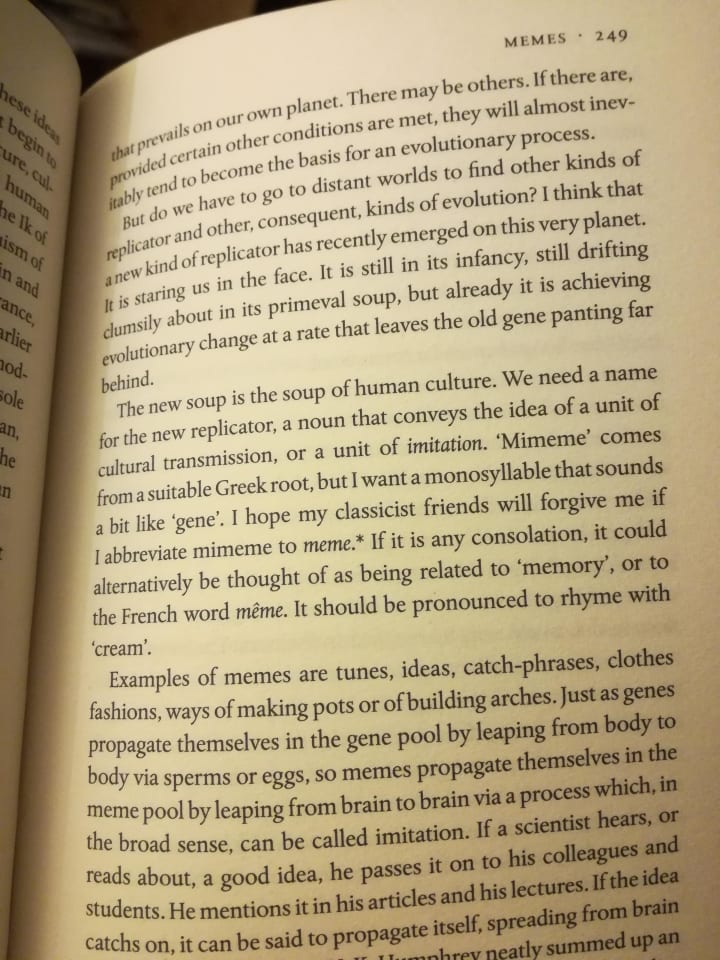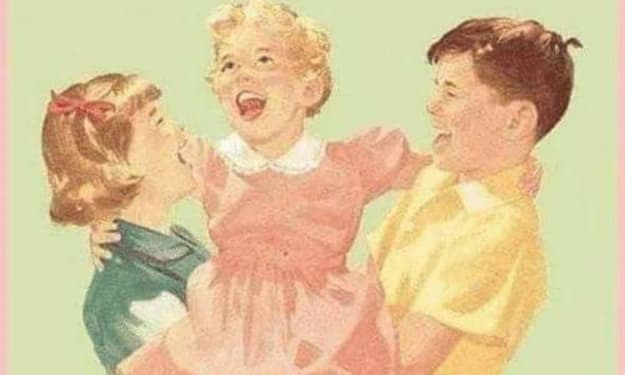Why do we all love Memes?
Online Humor Over Traditional.

Introduction:
In today's digital world, memes have become an integral part of our online culture. They are ubiquitous on social media and it's rare to browse through the internet without coming across at least one. Memes are a form of cultural expression that has been embraced by people of all ages and backgrounds. This article will explore what memes are their history, how they started or evolved, why we all love memes, whether memes are still alive, or if any other technology has taken them off.
What is a Meme?
A meme is an idea, behavior, or style that spreads from person to person within a culture. The term "meme" was coined by Richard Dawkins in his 1976 book "The Selfish Gene." According to Dawkins, memes are the cultural equivalent of genes, as they replicate and evolve through cultural transmission rather than biological inheritance.

Memes come in various forms, including images, videos, and text, and they often use humor to convey a message. They can be a way to comment on current events, social trends, and popular culture, and they are often used to express ideas or opinions in a humorous way.
History of Memes:
While the term "meme" was coined by Richard Dawkins in 1976, the concept of memes has been around for centuries. The earliest example of a meme dates back to the 1700s when a caricature of King George III was circulated throughout Europe. However, it wasn't until the advent of the internet that memes really took off.
The first internet meme is generally considered to be the "Dancing Baby," which was created in 1996. The Dancing Baby was a 3D animation of a baby doing a dance that was circulated through email and became a viral sensation.
How Memes Started & Evolved:
As the internet evolved, so did memes. With the rise of social media platforms like Facebook, Twitter and Instagram, memes became even more widespread. Today, memes are a ubiquitous part of online culture, and they are created and shared by people all over the world.
One reason for the popularity of memes is their simplicity. They can be created quickly and easily using online tools, and they don't require any special skills or expertise. Anyone can make a meme, which means that they are accessible to everyone.
Another reason for the popularity of memes is their ability to convey complex ideas in a simple and humorous way. Memes often use humor to comment on current events, social trends and popular culture, and they can be a way to express ideas or opinions that might be difficult to convey in words alone.
Why We All Love Memes:
There are many reasons why we all love memes. One reason is that they are often funny and entertaining. Memes can provide a quick laugh or a moment of levity in our busy lives, and they can be a way to connect with others who share our sense of humor.
Another reason why we all love memes is that they are relatable. Memes often comment on universal experiences, such as the frustrations of daily life or the challenges of navigating social situations. By sharing a meme, we can express our feelings and connect with others who have had similar experiences.
Finally, memes can be a way to express our creativity. By creating and sharing memes, we can showcase our wit and humor and connect with others who appreciate our sense of humor.
Few Categories memes I knew:
There are various categories of memes and new types are constantly emerging as the internet and popular culture continue to evolve. Here are some of the most common types of memes:
Dank Memes: This term is used to describe memes that are edgy, surreal, and often nonsensical. They are usually characterized by their absurdity and their tendency to be offensive or controversial.
Normie Memes: These are memes that are considered mainstream and accessible to a wide audience. They tend to be less edgy and more relatable than dank memes, and they often use popular culture references to connect with their audience.
Dark Memes: This category of memes deals with topics that are often considered taboo or offensive, such as death, mental illness, and suicide. They are often characterized by their dark humor and their tendency to make light of serious or sensitive issues.
Wholesome Memes: These are memes that are positive, uplifting and often feature messages of love and kindness. They are often used to spread positivity and to create a sense of community online.
These categories are not mutually exclusive, and many memes can fit into multiple categories. Additionally, there are many other categories of memes that exist, such as political memes, gaming memes, and celebrity memes. The categories of memes are constantly evolving and changing as new trends and styles emerge within the online community.
Is Meme Still Alive? Or Any Other Technology Took it Off?
While memes are still popular today, there are some who argue that their popularity is waning. One reason for this is the rise of other forms of digital communication, such as GIFs and emojis. These forms of communication can convey similar ideas to memes, but they are often more visual and require less context.
Another reason why some believe that memes are losing popularity is that they are becoming increasingly commercialized. As memes have become more mainstream, brands have started using them in their marketing campaigns. While some people enjoy seeing their favorite memes used in advertisements, others feel that it dilutes the authenticity of the meme and makes it less interesting.
Despite these challenges, memes are still a popular and integral part of online culture. They continue to evolve and adapt to changing trends and technology. New memes are created every day, and old memes are repurposed and repackaged to stay relevant.
Conclusion:
Memes are a fascinating and unique cultural phenomenon that has captured the hearts and minds of people all over the world. They are a way to express our creativity, connect with others and comment on current events and social trends. While their popularity may ebb and flow over time, it's clear that memes have had a significant impact on our online culture, and they will likely continue to do so for years to come.
The End
Like, Comment and Share
With Love,
Aerious.
About the Creator
Aerious
I Lyk to wryt ,






Comments
There are no comments for this story
Be the first to respond and start the conversation.